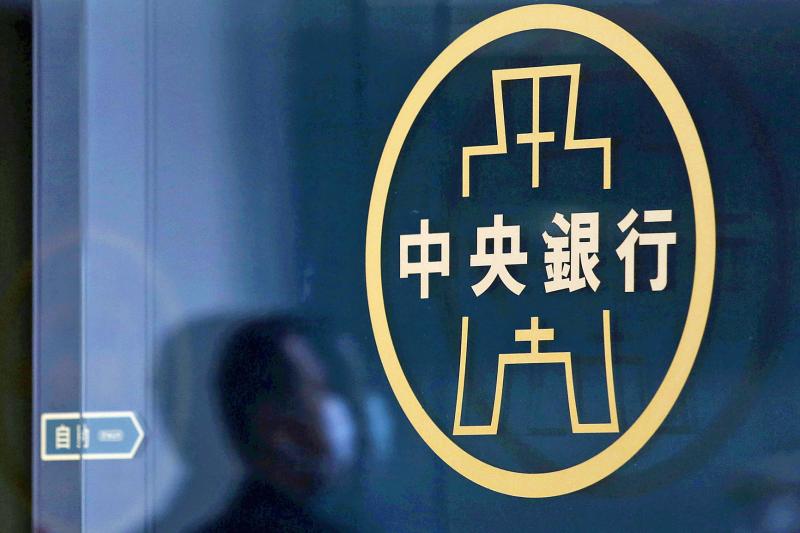The central bank intends to maintain selective credit controls on the local property market, which has seen an uptick in transactions and prices, it said in a report released yesterday, ahead of Governor Yang Chin-long (楊金龍) attending a meeting of the legislature’s Finance Committee today.
“The central bank will closely watch the property market and mortgage operations to prevent an excessive flow of credit to the property market,” Yang said in the report.
The bank is to maintain the 60 percent limit on luxury housing loans to achieve that aim, the report said.

Photo: Tyrone Siu, Reuters
Yang underscored the policy stance after acknowledging an uptrend in local property prices, whereas properties elsewhere in the world are taking a hit from diminished economic activity amid the COVID-19 pandemic.
The governor attributed the price hikes to Taiwanese companies returning from China to diversify investment risks, international technology giants stepping up investment in Taiwan and land purchases by local developers and life insurance companies.
The government has received more than NT$1 trillion (US$34.54 billion) in investment pledges from local firms that aim to shift part of their manufacturing back to Taiwan in the wake of the US-China trade dispute.
These investments would generate job opportunities and drive up income levels, which in turn would boost housing affordability and lower mortgage burdens, Yang said in the report.
The onshoring trend and the government’s encouragement of urban renewal projects have fueled optimism in the property market, he added.
The upbeat sentiment is most evident in Taichung, where presale residential project prices have posted the steepest gains, Yang said.
Overall, the pace of recovery is stronger in southern Taiwan than in the north, he said, adding that selling pressure remains in areas with heavy supply.
The central bank reportedly telephoned several lenders to convey its concern over loose mortgage standards amid reports that some bank branches are offering loans of up to 90 percent of home values to attract customers.
The practice is rare, driven mainly by excessive idle liquidity, the bank said, adding that the average loan-to-value ratio was 71.3 percent in the first half of this year.
Rather, most lenders opt to shore up their business by extending the grace period or providing favorable borrowing costs, the central bank said.
Defaults on mortgage and construction loans dropped to 0.14 percent and 0.12 percent respectively in August, lower than the overall bad loan ratio of 0.24 percent, it said.
Tax policies are more effective tools in curbing property speculation and land hoarding, the bank said.

UNCERTAINTY: Innolux activated a stringent supply chain management mechanism, as it did during the COVID-19 pandemic, to ensure optimal inventory levels for customers Flat-panel display makers AUO Corp (友達) and Innolux Corp (群創) yesterday said that about 12 to 20 percent of their display business is at risk of potential US tariffs and that they would relocate production or shipment destinations to mitigate the levies’ effects. US tariffs would have a direct impact of US$200 million on AUO’s revenue, company chairman Paul Peng (彭雙浪) told reporters on the sidelines of the Touch Taiwan trade show in Taipei yesterday. That would make up about 12 percent of the company’s overall revenue. To cope with the tariff uncertainty, AUO plans to allocate its production to manufacturing facilities in

Taiwan will prioritize the development of silicon photonics by taking advantage of its strength in the semiconductor industry to build another shield to protect the local economy, National Development Council (NDC) Minister Paul Liu (劉鏡清) said yesterday. Speaking at a meeting of the legislature’s Economics Committee, Liu said Taiwan already has the artificial intelligence (AI) industry as a shield, after the semiconductor industry, to safeguard the country, and is looking at new unique fields to build more economic shields. While Taiwan will further strengthen its existing shields, over the longer term, the country is determined to focus on such potential segments as

TAKING STOCK: A Taiwanese cookware firm in Vietnam urged customers to assess inventory or place orders early so shipments can reach the US while tariffs are paused Taiwanese businesses in Vietnam are exploring alternatives after the White House imposed a 46 percent import duty on Vietnamese goods, following US President Donald Trump’s announcement of “reciprocal” tariffs on the US’ trading partners. Lo Shih-liang (羅世良), chairman of Brico Industry Co (裕茂工業), a Taiwanese company that manufactures cast iron cookware and stove components in Vietnam, said that more than 40 percent of his business was tied to the US market, describing the constant US policy shifts as an emotional roller coaster. “I work during the day and stay up all night watching the news. I’ve been following US news until 3am

COLLABORATION: Given Taiwan’s key position in global supply chains, the US firm is discussing strategies with local partners and clients to deal with global uncertainties Advanced Micro Devices Inc (AMD) yesterday said it is meeting with local ecosystem partners, including Taiwan Semiconductor Manufacturing Co (TSMC, 台積電), to discuss strategies, including long-term manufacturing, to navigate uncertainties such as US tariffs, as Taiwan occupies an important position in global supply chains. AMD chief executive officer Lisa Su (蘇姿丰) told reporters that Taiwan is an important part of the chip designer’s ecosystem and she is discussing with partners and customers in Taiwan to forge strong collaborations on different areas during this critical period. AMD has just become the first artificial-intelligence (AI) server chip customer of TSMC to utilize its advanced